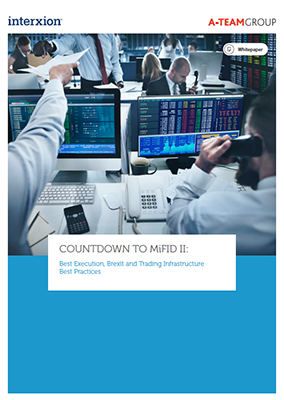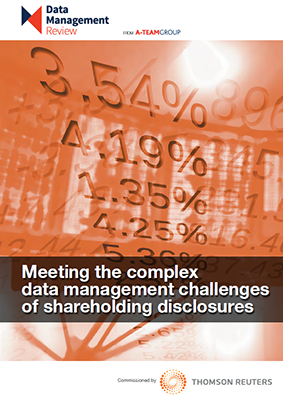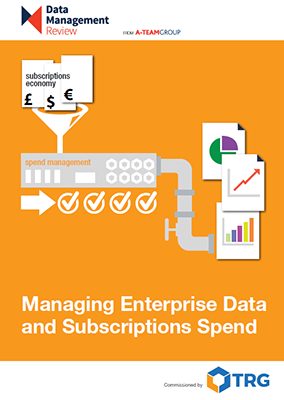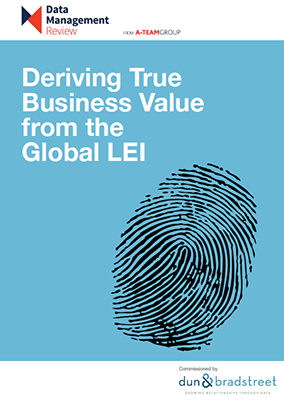A-Team Insight White Paper
Countdown To MiFID II: Best Execution, Brexit and Trading Infrastructure Best Practices
The events of 2016 have muddied the waters for financial institutions operating in Europe that need to figure out how planning for possible outcomes of Brexit will in turn affect compliance with European MiFID II regulation taking effect in January 2018. While it is widely recognised that firms will have to make major changes to...
Applying Open Data Principles to Financial Data Governance
To ensure sound data governance, an enterprise needs a centralised framework for understanding all data, typically an online data catalogue that lists data sources and the metadata that describes data characteristics and provenance. With a data catalogue in place, data quality and data management can then be addressed. Getting started on data governance can be...
Meeting the Complex Data Management Challenges of Shareholding Disclosures
Getting shareholder disclosure right has become a priority for financial institutions that are already required to monitor breaches of ownership thresholds that are used to protect sensitive industries, but must also comply with the EU Transparency Directive Amending Directive (TDAD). The directive came into effect in November 2015 and requires firms to analyse holdings of...
Managing Enterprise Data and Subscriptions Spend
Financial institutions consume a broad range of services on a subscription basis to meet their business needs. These include market data and electronic information services, subscriptions for print and web-based publications, and increasingly, consultancy, software, hardware and telecommunications services. As consumption rises, so too can costs, calling on firms to take a proactive approach to...
Harmonising the Approach to Regulatory Compliance
Regulatory compliance is key to financial institutions, but it can be costly and difficult to achieve in an environment where new regulations are constantly on the horizon and must be implemented efficiently and effectively. This White Paper, sponsored by Thomson Reuters and based on a survey of close to 70 senior data managers, discusses how...
Deriving True Business Value from the Global LEI
The Legal Entity Identifier (LEI) – the free-to-use entity identifier – has established itself as a viable standard for helping financial institutions identify unique business entities that are parties to financial transactions. But it’s widely accepted to have its limitations. In particular, a lack of standardization and ability to link to associated data sets is...
Leveraging Open-Source Market Data Distribution for Innovation
Global spend on market data runs into tens of billions of dollars a year, yet despite this considerable cost to financial services firms, progress historically has been surprisingly slow to reduce the dominance of a few major incumbent suppliers who share most of this revenue. However, the scene is set for radical change of this...
Building the Business Case for Joining the Reference Data Utility
The benefits of joining a reference data management utility include the ability to improve data quality, simplify complex data management infrastructures, meet constantly expanding and changing regulatory requirements, and realise significant reductions in operating costs. This White Paper, sponsored by SmartStream, describes four business cases that can be addressed by adopting a utility-based approach to...
Entity Data Quality: New Approaches and the Four Categories of Data Quality Management
Legal entity data is critical to data strategy, business decisions and regulatory compliance, but it can be a challenge to ensure the data is accurate and reliable as the entity universe is large, millions of attributes change every year and inconsistent codes and symbologies identifying entities, corporate hierarchies and ultimate beneficial owners must be managed....
8-Step Guide to Choosing the Right Market Data Inventory Platform
Market data inventory platforms have been used by financial institutions to track, manage and control market data for decades, but as technology has developed, so too have inventory platforms, raising questions about the capabilities of current solutions and pointing to the possibilities of migrating to more modern platforms. This White Paper, sponsored by TRG, considers...










